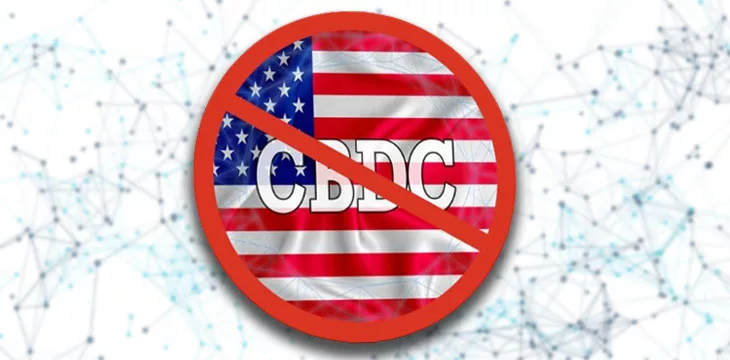
|
Getting your Trinity Audio player ready... |
Five U.S. senators have backed a bill that seeks to bar the Federal Reserve from introducing a central bank digital currency (CBDC), describing it as the Biden administration’s attempt to surveil Americans’ spending habits.
Sen. Ted Cruz (R-Texas) introduced the CBDC Anti-Surveillance State Act this week, backed by four other legislators, including Tennessee’s Bill Hagerty and Indiana’s Mike Braun.
Senators Ted Budd and Rick Scott, whose states of North Carolina and Florida have passed legislation prohibiting the use of the digital dollar, also backed the bill.
Cruz, who has been one of the most outspoken CBDC critics, alleges that the Biden administration intends to use the digital dollar to infringe on Americans’ rights. He reiterated the most common CBDC criticism—that it will be used as a surveillance tool by the authorities.
“The Biden administration salivates at the thought of infringing on our freedom and intruding on the privacy of citizens to surveil their personal spending habits, which is why Congress must clarify that the Federal Reserve has no authority to implement a CBDC. I’m proud to lead the fight in the Senate to restrict the Federal Reserve’s exploration of and attempt to introduce a CBDC to the American economy,” he said.
The draft bill focuses on the Federal Reserve rather than the digital dollar. It aims to bar the central bank from issuing the CBDC directly to Americans, “ensuring the Federal Reserve can’t mobilize itself into a retail bank.”
The bill also prohibits the Fed from using a two-tier system in which it indirectly issues the digital dollar through commercial banks. It must also not use the CBDC as a monetary policy tool.
If the U.S. is to ever issue a digital dollar, Congress must provide legislation to pave the way, the bill stipulates.
“Big government has no business spying on Americans to control their personal finances and track their transactions. It is a massive overreach and a non-starter for me,” commented Florida’s Scott as he pledged his support to Cruz and the bill.
The bill has received support from organizations such as conservative think tank Heritage Action and the American Bankers Association.
The Blockchain Association also pledged support for the bill, stating that CBDCs present “major privacy concerns for everyday Americans,” including allowing the government to freeze people’s funds for any reason it deems fit.
A digital dollar is likely to become a major divisive factor as the election edges closer. The CBDC has become a partisan issue, with Republicans opposing it while Democrats express cautious support. Republican presidential frontrunner Donald Trump has promised
Americans that he would “never allow the creation of a CBDC.”
To learn more about central bank digital currencies and some of the design decisions that need to be considered when creating and launching it, read nChain’s CBDC playbook.
Watch: Blockchain provides perfect foundation for CBDC
Recommended for you
Lorem ipsum odor amet, consectetuer adipiscing elit. Elit torquent maximus natoque viverra cursus maximus felis. Auctor commodo aliquet himenaeos fermentum
Lorem ipsum odor amet, consectetuer adipiscing elit. Accumsan mi at at semper libero pretium justo. Dictum parturient conubia turpis interdum

 11-21-2024
11-21-2024


